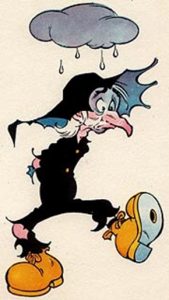 This Washington Post article is a decent overview of current thinking on depression treatment. Some takeaways:
This Washington Post article is a decent overview of current thinking on depression treatment. Some takeaways:
- The two most common treatments, antidepressant medication and cognitive-behavioral psychotherapy, have been found effective in many cases.
- Still, neither has established clear superiority over the other.
- We don’t yet have persuasive evidence that combining the two approaches improves outcomes. And it’s true that most depression patients opt for one or the other, often for reasons of convenience or personal preference.
- There’s evidence that simple exercise can also help — even as much as the first two.
- Side effects of antidepressant medication include nausea, vomiting, and dangerous interactions with other drugs. This may interfere with medication compliance.
- For severe and persistent depression, electrotherapies are sometimes effective where other treatments have not been.
- Despite advances in treatment, the dynamics of depression are not well understood.
So far, no surprises. Some comments of my own:
As mentioned in other posts, neither approach is effective in all cases, and in fact, both can be ineffective with a particular individual. So how does the treating practitioner know what to advise the patient? There’s a lot of guesswork involved.
Also, patients with severe substance disorders may experience depression as a result of the cumulative effects of their substance use. So it’s possible that depression symptoms may fade or disappear after months in recovery.
Nonetheless, most of the psychiatrists I know prefer to start antidepressants early in recovery, where depression is an issue. That’s in part because it takes weeks to show the benefits.
I suspect that in some cases, patients continue on antidepressant medication long after its usefulness is gone. There’s a rebound syndrome that sometimes results when the medications are terminated, and I’ve heard reports of people interpreting that as evidence that the depression has returned. It may not have. But more time is required to evaluate that.
Another consideration: Americans are so trusting in the value of antidepressant meds– as evidenced by those 250 million prescriptions we fill annually– that most of the time, it’s usually a family physician who writes or refills the prescription. Nothing wrong with that, but family docs are less likely to be aware of or propose new treatments than mental health professionals.
Last, problems related to these medications result in nearly 24,000 Emergency Room visits annually, second only to sedatives and anti-anxiety drugs. They aren’t candy, folks. Take care.









